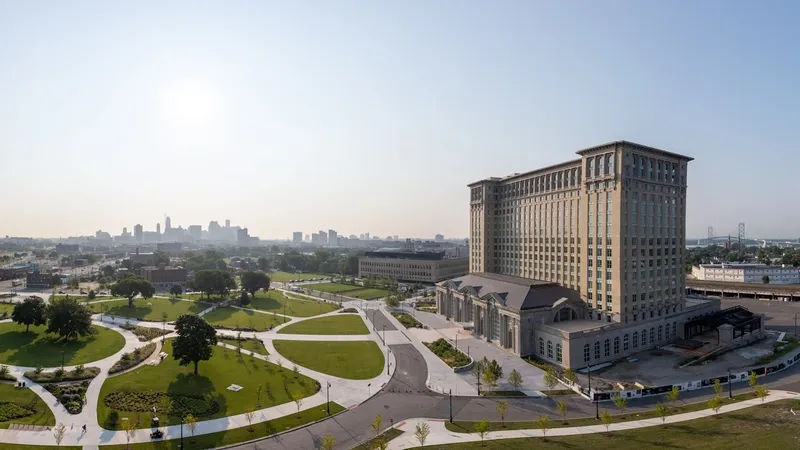
Andrew Bardin Williams looks at Missouri’s plans to become America’s ITS testbed
The state of Missouri launched its Road to Tomorrow initiative earlier this summer at the
Using a 320km (200-mile) stretch of I-70 between St. Louis and Kansas City, the project hopes to foster innovation in the transportation industry to improve the efficiency and safety of roadways while developing new ways to pay for transportation improvements. Some suggestions so far have been smart cars, self-driving vehicles and solar roadways.
“We’re not going to say no to anyone,” said Thomas Blair, assistant district engineer for the St. Louis Metro District. “We’re seeking innovators, vendors, solution providers, students—even people not in the transportation or construction industries—anyone with an idea. We want people to help us come up with innovative ways to construct, manage, maintain and fund our roadways.”
The stretch of I-70 to be used as the testbed is being built is the birthplace of the US Interstate System. Missouri was the first state to begin construction shortly after the 1956 bill was signed into law by President Dwight D. Eisenhower—a distinction not lost on the
“It’s only appropriate that the re-birth of the nation’s interstate system begins at its birthplace,” said Stephen R. Miller, Missouri Highways and Transportation Commission (MHTC) chairman. “Missouri has always been at the heart of highway transportation—not only because the state’s geographic location puts it at the nation’s core, but also because of the role it’s played in the realization of Eisenhower’s dream.”
While innovation and transportation funding are the focus of the initiative, improving road safety is also a motivation for developing the next generation highway system. According to the Insurance Institute for Highway Safety, there were 32,719 fatalities on US roads in 2013, and it makes sense that the road of the future would significantly reduce that rate.
A multidisciplinary team from MoDOT led by Blair has been assigned to come up with a set of proposals before the state legislature convenes in January to begin negotiations over road transportation funding in the state. Like other DOTs around America, Missouri is struggling to fund repairs for a crumbling infrastructure. Not only will the road of the future be safer, more reliable and more efficient, the goal is to make roadways self-funding—perhaps with a subscription model or other funding innovation.
There is no timetable for the project. Pressed further, Blair predicted that the Road to Tomorrow initiative could live up to 10 years, comparing it to the eight years it took NASA to put a man on the moon while reiterating that innovation doesn’t come overnight. Regardless, the state views this as a long-term project—one that if successful can be replicated on other roadways across the US.
In addition to the interstate, the testbed will include surrounding road infrastructure along the entire 320km (200 miles) of the I-70 that runs through the middle of Missouri from St. Louis in the east and Kansas City in the west. Called Missouri’s main street, nearly 20% of the state’s businesses and 25% of the state’s jobs lie within 16km (10 miles) of the interstate. The testbed area also includes 67,535 census blocks, 220 interchanges, 1,540 churches, 1,506 schools, 364 public-use buildings, 337 cemeteries, 220 parks, 77 radio towers, 74 U.S. Post Offices, 69 public-use airports, 66 hospitals, 39 colleges and universities and 38 lakes—making the area perfectly suited to deploy and test just about any ITS technology in any application.
FACT File: Missouri’s Road to Tomorrow
- Runs for 320km from St. Louis to Kansas City along the I-70
- Around 20% of Missouri’s businesses and 25% of its jobs are within 16km (10 miles).
- The testbed area includes: 67,535 census blocks, 220 interchanges, 220 parks, 77 radio towers, 69 public-use airports, 66 hospitals, 39 colleges and universities and 38 lakes.










